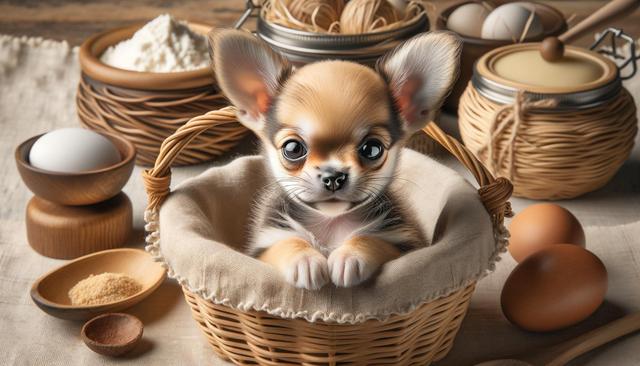Understanding the Chihuahua Breed
Chihuahuas are one of the smallest recognized dog breeds, yet they carry a personality that is anything but tiny. Originating from Mexico, these dogs are named after the Mexican state of Chihuahua, where the breed was discovered. Often weighing between 2 to 6 pounds as adults, their compact size makes them ideal for apartment living and those with limited space. Despite their stature, Chihuahuas are alert, lively, and loyal, often forming strong attachments to their human companions. They are also known for being vocal, which can be both a charming and challenging trait depending on your living situation.
Their small frame houses a big heart, and they thrive on attention and affection. When considering a Chihuahua puppy, it’s essential to understand that their behavior and temperament can vary widely. Some are more social and outgoing, while others may be shy and reserved. Socialization and early training are key to helping your Chihuahua grow into a well-adjusted adult dog.
Health and Lifespan Considerations
Chihuahuas are generally healthy dogs with a long lifespan, often living between 12 to 20 years. However, like all breeds, they are prone to certain health issues, many of which are connected to their small size. Some common health concerns include:
- Dental issues due to crowded teeth
- Luxating patella (slipping kneecaps)
- Heart problems
- Hypoglycemia in puppies
- Tracheal collapse
Regular veterinary care, a balanced diet, and an appropriate exercise routine go a long way in minimizing these risks. Chihuahua puppies require careful handling, especially during their early months, as their bones are fragile and susceptible to injury. It’s also important to be mindful of cold weather, as their small bodies can lose heat quickly. Investing in warm clothing and indoor play options can help keep them comfortable year-round.
Training and Socialization Tips
Training a Chihuahua puppy can be a rewarding experience, but it requires patience and consistency. These dogs are intelligent and alert, which means they can pick up commands quickly when properly motivated. However, they also have a streak of independence, which can sometimes come across as stubbornness. Use positive reinforcement techniques such as treats, praise, and play to encourage good behavior.
Socialization is equally important. Exposing your Chihuahua to a variety of environments, people, and other animals from a young age can prevent behavioral problems later in life. Group puppy classes can be a great way to help your Chihuahua build confidence and learn essential social skills. Some useful training tips include:
- Start with basic commands like sit, stay, and come
- Keep training sessions short and engaging
- Use a calm and firm tone
- Be consistent with rules and rewards
Chihuahuas can also benefit from crate training, which helps with housebreaking and gives them a safe space to retreat to when they feel overwhelmed.
Feeding and Nutrition
Proper nutrition is vital to the healthy development of Chihuahua puppies. Due to their small size, they have a fast metabolism and need high-quality food that provides adequate energy and nutrients. Choose a food formulated specifically for small breeds or puppies to ensure they receive the right balance of protein, fats, and carbohydrates. Feeding schedules should be carefully managed to avoid hypoglycemia, a condition that can affect small-breed puppies if meals are missed or spaced too far apart.
Here are some feeding tips for Chihuahua puppies:
- Feed 3 to 4 small meals per day during the first few months
- Ensure fresh water is always available
- Avoid feeding table scraps or overly rich treats
- Monitor their weight and adjust portions as needed
Consult your veterinarian to determine the most appropriate diet plan based on your puppy’s age, weight, and activity level. A well-fed Chihuahua will have a shiny coat, bright eyes, and plenty of energy for play and exploration.
Living with a Chihuahua Puppy
Bringing a Chihuahua puppy into your home is a joyful experience, but it also comes with responsibilities. These dogs form close bonds with their owners and enjoy being part of the family’s daily activities. They are often happiest when they are not left alone for extended periods, so they may not be the best fit for households where everyone is away most of the day. Chihuahuas are known to be loyal and protective, sometimes acting as little watchdogs despite their size.
To create a safe and stimulating environment for your Chihuahua puppy:
- Provide soft bedding and a cozy sleeping area
- Use baby gates or pens to limit access during training
- Offer toys that are safe for small breeds
- Set aside daily time for play and interaction
Whether you live in a small apartment or a large home, a Chihuahua can adapt well as long as their physical and emotional needs are met. With proper care, training, and love, these tiny dogs can become cherished companions for years to come.




Leave a Reply